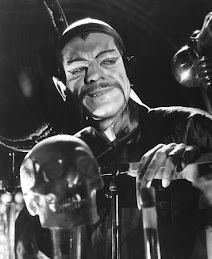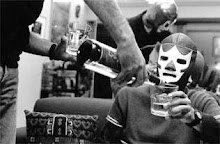In 1996 Science and science fiction met with worldwide ado. Ian Wilmut, a British scientist working in Scotland was able to clone a female sheep using a mammary cell. With wonder or disgust, Dolly took the center stage for the debate on the bio-ethics of cloning. Scientists clone animals by removing the nucleus from an animal egg, and replacing it with the nucleus from a body cell of another animal. This way, the egg develops into an animal that has identical genetic traits as the animal whose cell nucleus was taken. (http://www.time.com/time/2007/cloning/2.html)
This debate, whether we, as humans, have the right to clone humans, animals or otherwise, rides on the crest of many underlying ideas and opinions. As science moves forward into the future, what we decide now on the bio-ethical questions will forever mark the pathways to come.
The big question that comes up is the morality of cloning. Even before we look at the health or environmental or even the custodial principles that come into the gray are of cloning we must first think on this. Is it morally ethical to clone? This question splits into two camps..
Firstly, stepping on God’s turf. At what point of human intervention in the name of life creation, reproduction or interfering is crossing into the ventures of The Creator. “God never intended for people to be cranked off an assembly line like so many pieces of machinery. This is such a fundamental principle that even the most obtuse ought to recognize it.” (http://www.christiancourier.com/articles/read/the_ethics_of_human_cloning) The view from the Christian Courier attacks both the impetus and impact of scientific cloning ventures, stating that “While there is no apparent ethical offence in cloning a carrot, or even a frog, such is not the case with people…humans are not mere animals that have evolved from biological slime. They are creatures specially fashioned by God; which means they are unique in their nature.” The paper goes on to decry the efforts as being beyond the scope at which man should be working in.
The Other side of the moral question is that in our haste to interfere genetically with the organisms on earth that we supercede the natural ways of things, from biodiversity and beyond. A food industry specialist, Professor Andrew Starbird , director of SCU's Institute of Agribusiness states in an interview with Robin K. Sterns, Ph.D. (http://www.scu.edu/ethics/publications/submitted/sterns/doublenothing.html) that “genetic diversity has been lost through cloning-reproduction through cuttings-in grapes and apples. It has been lost, as well, through breeding in beans, corn, potatoes, and several vegetable crops.” This, he avers, will lead to loss of crops from diseases or intolerance to pests. The theory here is that when crops, humans, animals….any group organisms occur naturally, the diversity in their genetic make-up prevents a disease from attacking and killing off the whole lot. If a whole herd of cows all shared too similar a gene sequence, it leaves the whole herd open to a genetic disease that otherwise may only have affected some. This can result in an increase of major loss from disease. Genetic variability allows some individual plants to survive plagues, while genetic homogeneity makes all individuals equally susceptible to disease." (http://www.scu.edu/ethics/publications/submitted/sterns/doublenothing.html)
With these two basic views being looked at, whether a question of human will mixed with a percieved God complication or the genetic recombination waning that could end the lives of large populations through disease, cloning remains a challenge of doctrine, future-science and opinion.
Sunday, January 20, 2008
Subscribe to:
Post Comments (Atom)







No comments:
Post a Comment